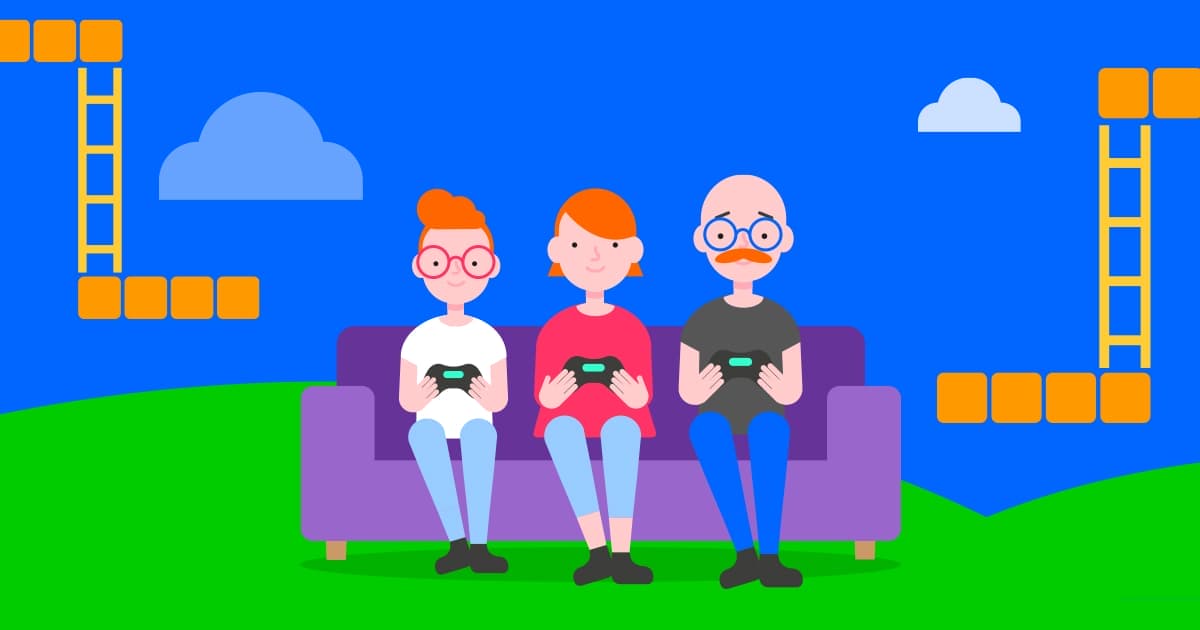Parents have told us that they are most concerned about the amount of time their child is spending gaming, becoming addicted and sharing personal data.
Six in 10 (63%) worry their kids are spending too long playing on their devices (up from 44% in 2019). Over half (52%) are concerned about their kids’ video gaming with strangers (up from 38% in 2019), and 45% fear their child being bullied when playing (up from 40%).
More dads say they game with their kids, and they are also more likely than mums to recognise the concerns of gaming, particularly around notifications received when gaming (+24%pts), spending in games and in-game purchases (both +23%pts).
Gaming safely and responsibly
Encouragingly many parents actively talk to their children about how to game online safely. Two in five (42%) talk to their child about safe gaming and only 37% have set up parental controls.
However only a third of parents have said they have set parental controls on their consoles and games. Of those who haven’t, 58% are unaware of parental controls, they don’t know how to set them up or find it too difficult.
Understanding and usage of PEGI ratings
PEGI ratings is a system used to ensure that entertainment content, such as games, but also films, tv shows or mobile apps, is clearly labelled with a minimum age recommendation based on the content they have.
- 74% say they are a useful guide
- 72% say PEGI ratings are necessary
- 41% say they would let their kids play regardless
- Only 29% of parents check PEGI ratings of games


